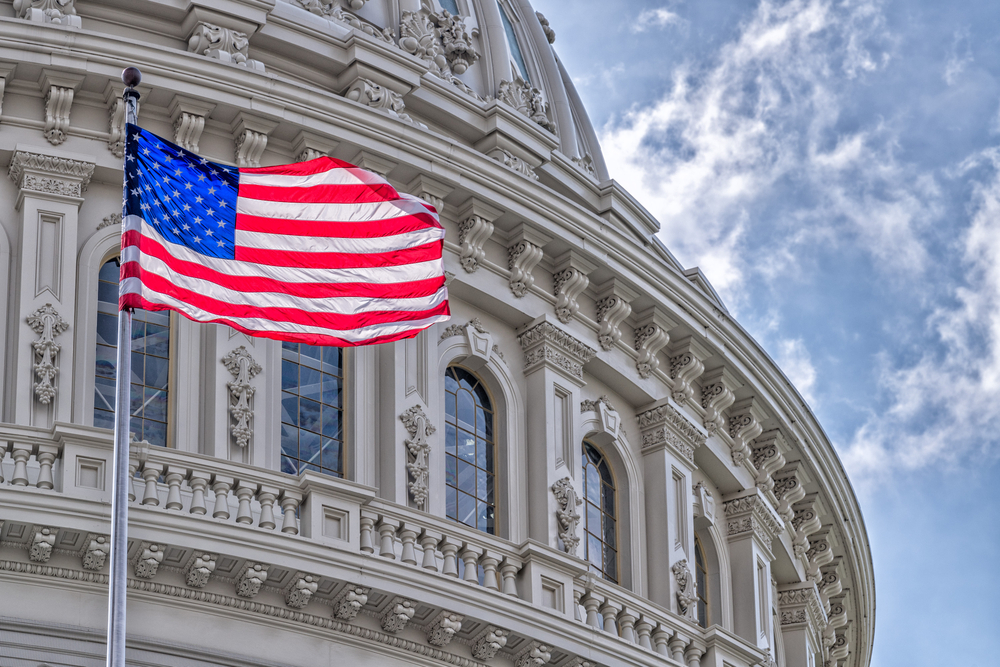
Two national organizations that represent biopharmaceutical and business interests have penned a letter to each member of the U.S. House of Representatives urging lawmakers to approve the Pandemic and All-Hazards Preparedness and Advancing Innovation Act of 2018, H.R. 6378, before critical public health security legislation expires.
Written by officials from the Alliance for Biosecurity and the U.S. Chamber of Commerce, the letter noted the urgent need to reauthorize the Pandemic and All-Hazards Preparedness Act (PAHPA), which is set to expire at the end of September.
Former Congressman Jack Kingston, the Alliance for Biosecurity Secretariat, and Neil L. Bradley, executive vice president and chief policy officer at the U.S. Chamber of Commerce wrote, “H.R. 6378 is central to protecting American citizens, organizations, and communities against natural and man-made biosecurity hazards.”
The letter outlines several initiatives that the organizations support within the legislation, including:
- Authorizing critical funding of the Biomedical Advanced Research and Development Authority (BARDA), and Project BioShield Special Reserve Fund, which creates incentives for private companies to create drugs to treat anthrax, smallpox, botulinum toxin, and radiological threats, among others.
- Supporting $250 million per year through fiscal year 2023 for research and development activities for both a pandemic influenza program and one that monitors infectious diseases that could cause pandemics.
- Creating new market-based incentives to advance cutting-edge biomedical research.
“Our groups support developing strategic partnerships between BARDA and the business community to mitigate threats that could pose a significant risk to U.S. health and safety,” the letter said.
In addition, H.R. 6378 would ensure that health care professionals around the country are trained to respond to possible pandemic outbreaks. The act also prioritizes the future development of the U.S. national stockpile of vaccines, diagnostics, and medical equipment. As for funding, the proposal would create a Public Health Emergency Response Fund for the Health and Human Services Secretary to use as a “funding bridge” when an outbreak occurs. This bridge would be present until immediate funding is available from Congress to supplement with an emergency appropriations bill.
The Alliance for Biosecurity is a coalition of biopharmaceutical companies and academic partners that support public-private partnerships in order to advance medical countermeasures for the benefit of public health and national security. Members of the group include Bavarian Nordic, Elusys Therapeutics Inc., Emergent BioSolutions and Johnson & Johnson/Janssen. The U.S. Chamber of Commerce, meanwhile, represents the interests of more than 3 million businesses.
The letter by officials of the Alliance for Biosecurity and the U.S. Chamber of Commerce are among others calling for the reauthorization of PAHPA.
In an editorial published July 28 in The Hill, Robert Kadlec, the Assistant Secretary for Preparedness and Response at the U.S. Department of Health and Human Services, said reauthorization of PAHPA would help protect the United States from threats to public health, whether naturally occurring or a deliberate chemical, biological, radiological or nuclear attack.
“Paramount to reauthorization is recognition that while our nation is better prepared than in the past for the health effects of disasters, we must continuously update our readiness programs in order to save lives and protect Americans from evolving 21st century health security threats,” Kadlec wrote.
He called for Congress to authorize a 10-year advance appropriation for purchasing countermeasures for national security threats through Project Bioshield, and that the nation’s healthcare system is ready to care for a large number of patients if a disaster strikes.
“We must strengthen the pipeline and domestic stockpile of medical countermeasures, such as medicines, vaccines and diagnostic tests, needed to protect Americans from these threats by ensuring robust funding and a clear government market for these medical countermeasures, which often have no commercial use,” Kadlec wrote. “Industry will only produce them if a clear, reliable government buyer exists.”




